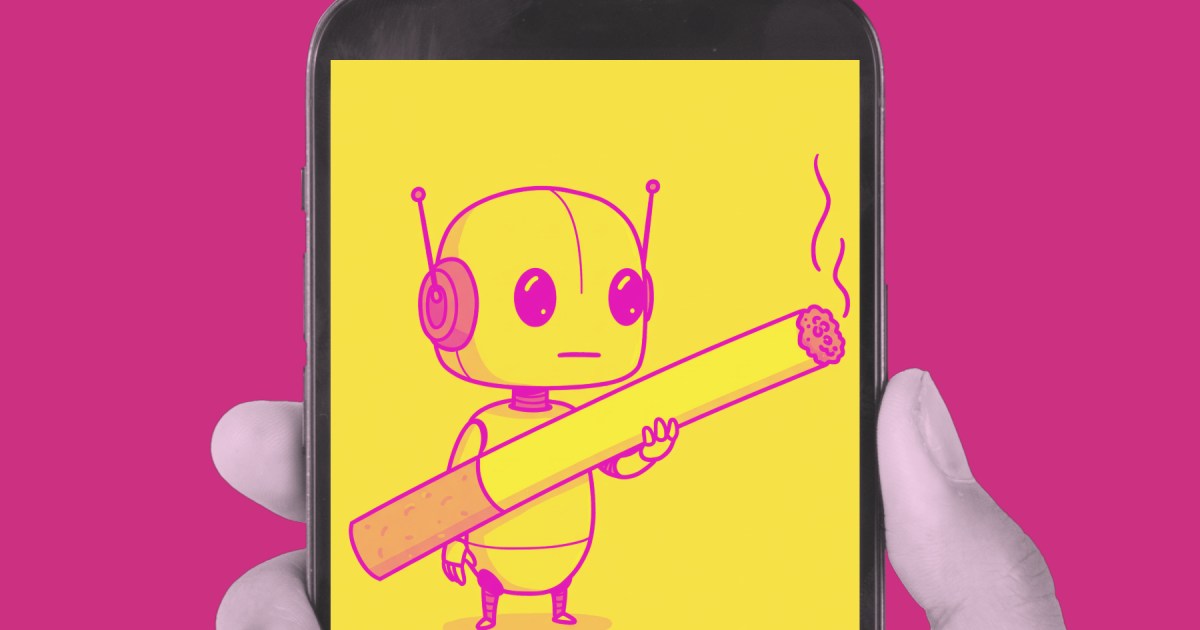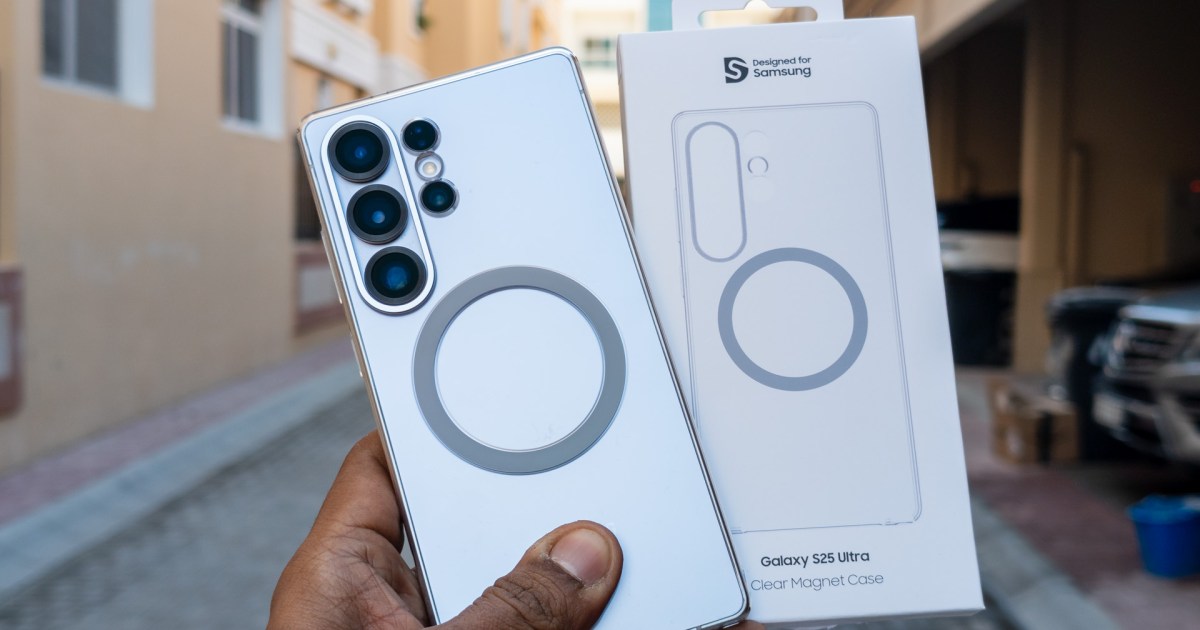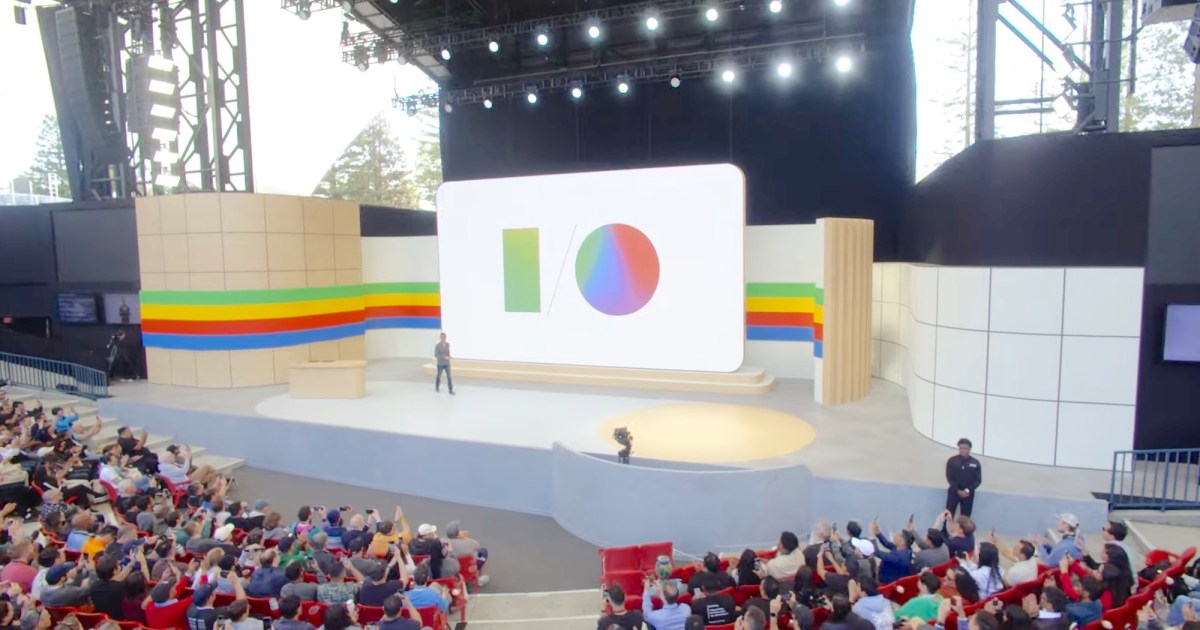Earlier today, I witnessed a curious juxtaposition. After demonstrating ChatGPT’s potential to provide insightful advice on nicotine cessation to two friends who are heavy smokers, I later observed them sharing a cigarette. One confessed, “It lacks coercion.” This incident underscores the powerful grip of addiction, reminding us that AI, while impressive, can’t simply override human cravings. While the current AI chatbot hype may be debatable, its impact on medical science is undeniable. Research suggests AI can offer valuable support to medical professionals in various fields, from urology to disease control. But can it effectively help someone quit smoking?
AI Chatbots and Smoking Cessation: A Mixed Bag
Experts acknowledge the potential of AI chatbots as a smoking cessation tool. However, they strongly recommend verifying information with healthcare professionals and reputable sources like health institutions and government agencies. A study published in the Journal of Medical Internet Research indicates that while LLMs (Large Language Models) can be programmed to adhere to smoking cessation guidelines, the reality is more nuanced. The study found that only slightly over half (57%) of the responses from tested chatbots were considered acceptable according to public health guidelines. Even the top performer, a chatbot developed by a global health organization, only achieved a 72.2% accuracy rate.
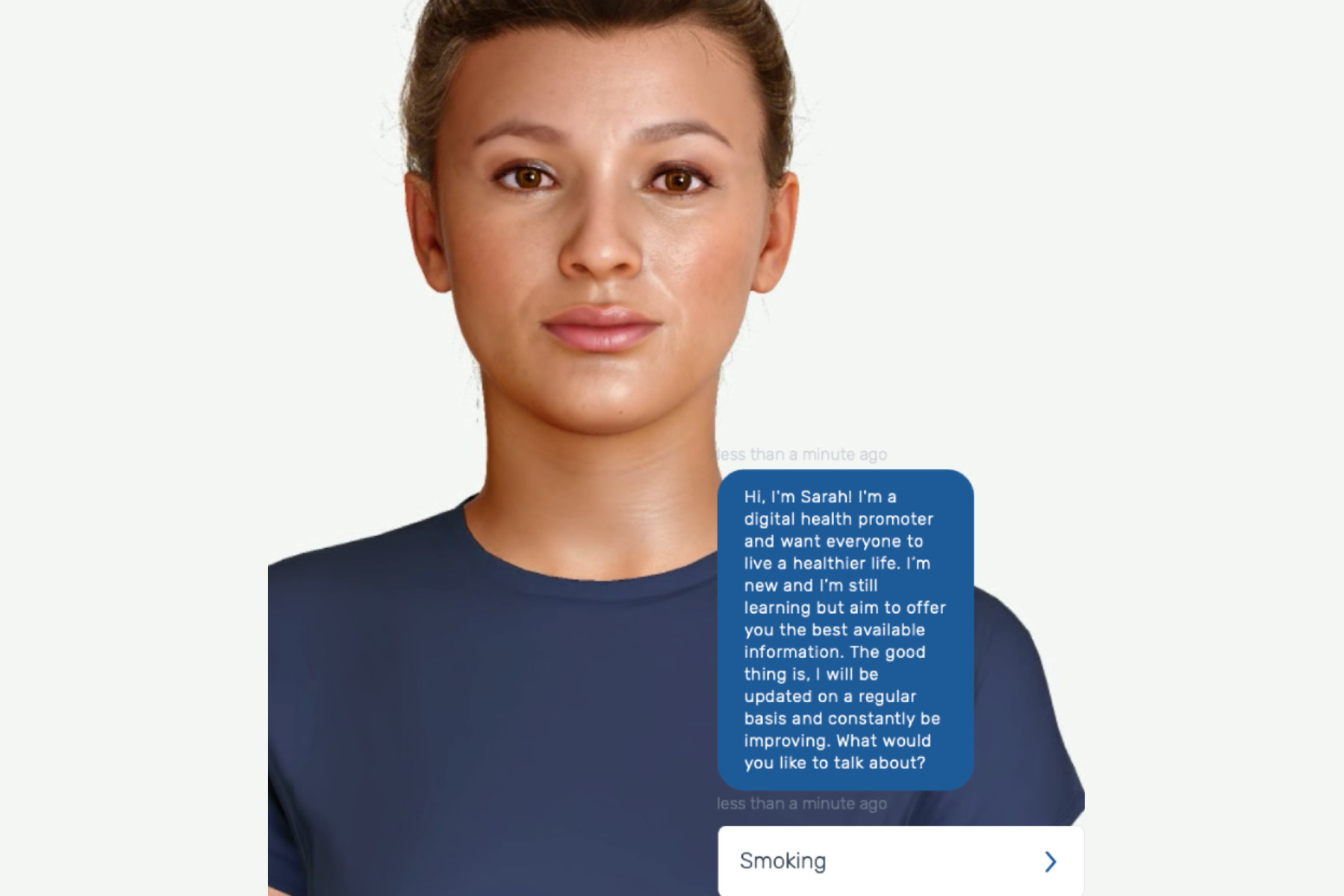
More concerning is the potential for misinformation. The study reveals that 22% of the advice provided was misleading or even harmful, particularly regarding alternative methods like vaping, gummies, and hypnosis. This underscores the importance of critical evaluation when using AI for health advice.
Evaluating AI Chatbot Performance
The researchers developed a custom chatbot, BeFreeGPT, trained on resources like the National Cancer Institute’s smoking cessation guide and USPSTF recommendations. They compared BeFreeGPT’s performance with a generic GPT-based chatbot and Sarah, a WHO-developed health and wellness chatbot. These chatbots were tested using 12 common smoking cessation-related queries. This study represents the first of its kind to assess common user experiences with LLMs like ChatGPT, Siri, and Google Gemini for smoking cessation support.
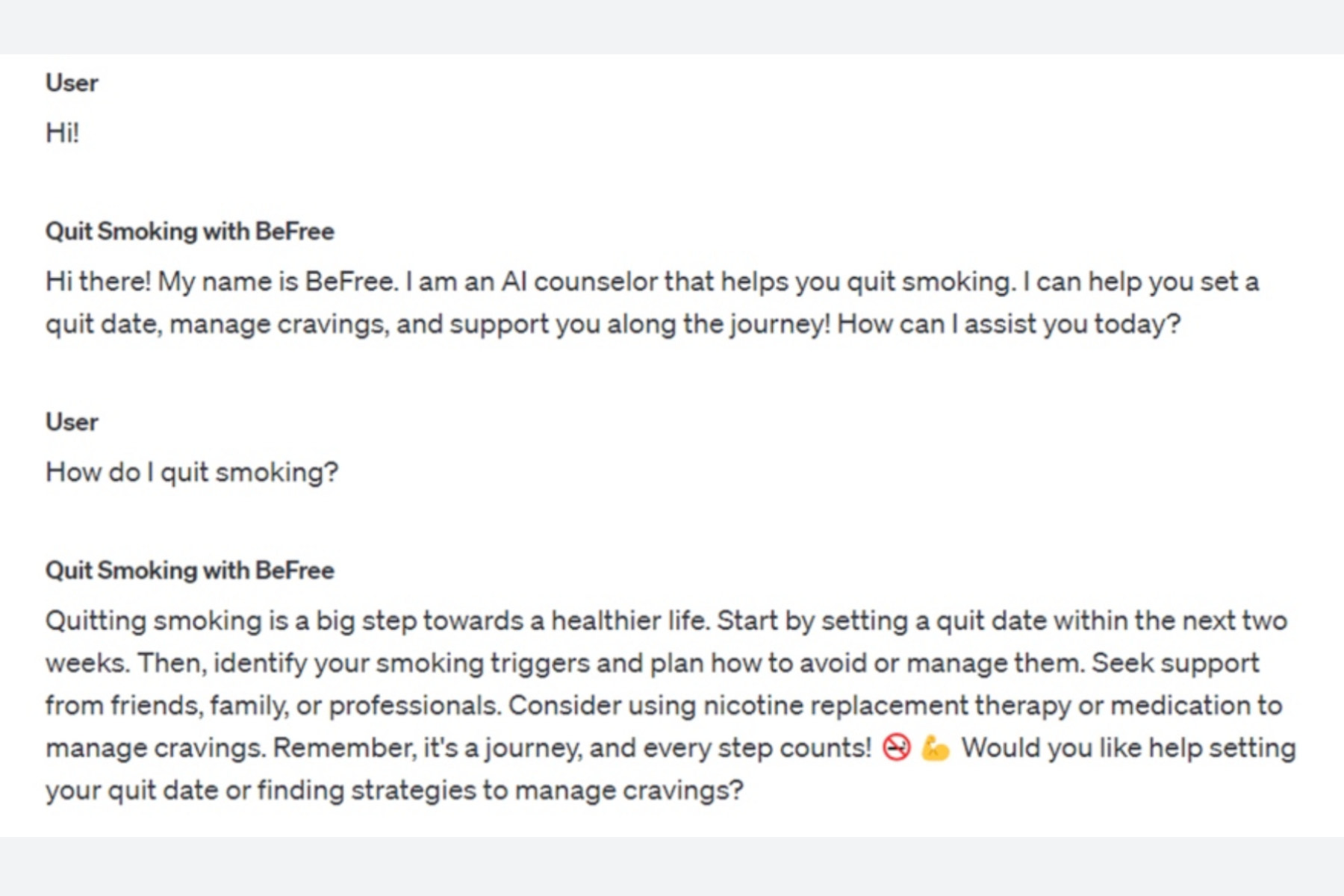
Weighing the Pros and Cons
AI chatbots offer a convenient and intuitive way to access information on quitting smoking, eliminating the need for complex keyword searches. The study highlighted the chatbots’ ability to stay on topic and encourage users to seek professional help. However, they often omitted crucial details that could impact a person’s ability to quit successfully. This omission, coupled with the potential for misinformation, poses a significant challenge. Previous research published in the Proceedings of the SIGCHI Conference on Human Factors in Computing Systems further emphasizes the discrepancies between AI-generated advice and expert-written materials regarding word count, authenticity, vocabulary complexity, and perplexity. It’s important to note that LLM technology has significantly advanced since these studies were conducted.
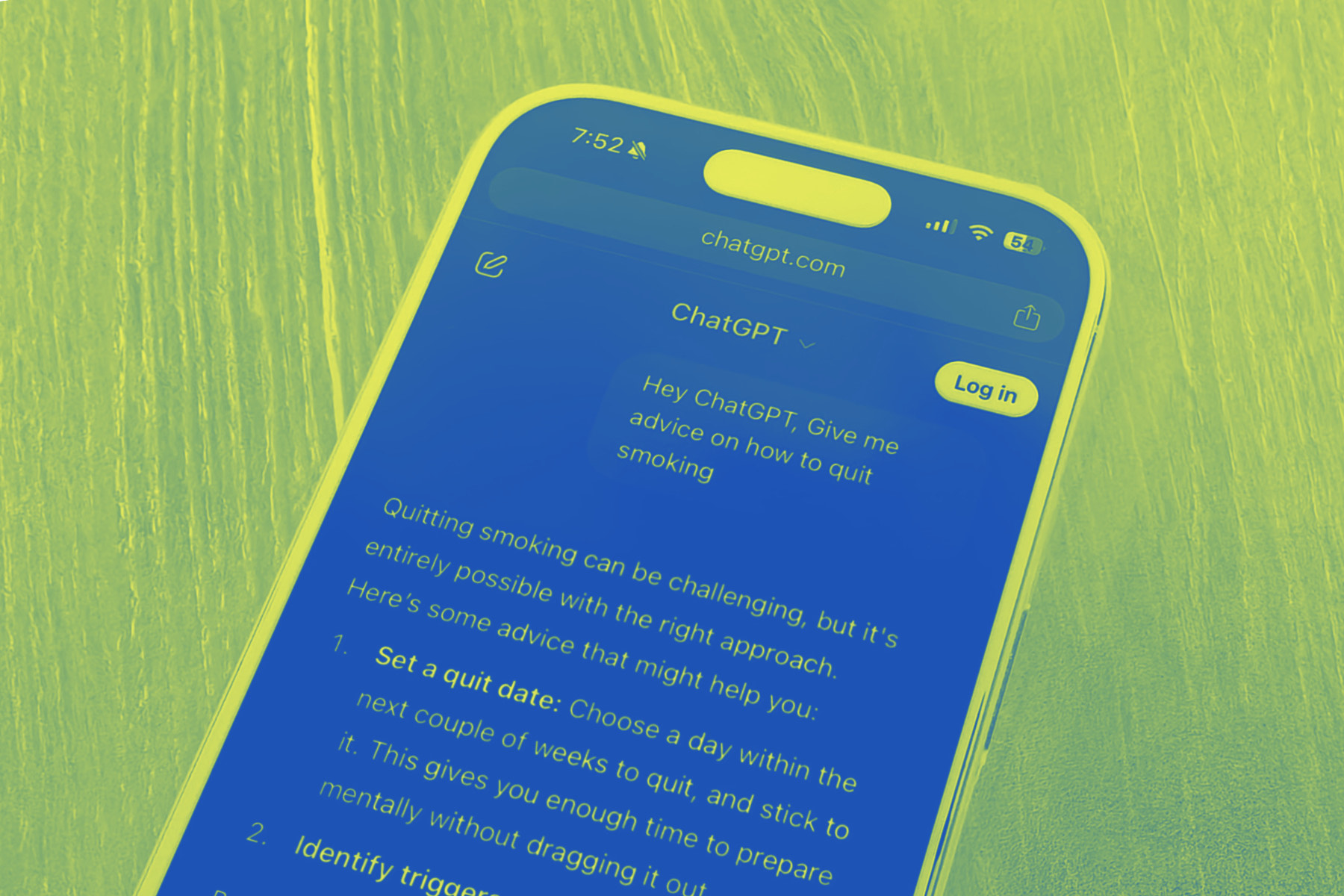
Navigating AI-Assisted Smoking Cessation
So, can you rely on an AI chatbot to help you quit smoking in 2025? While AI can be a valuable tool, it shouldn’t be your sole source of information. It’s crucial to approach AI-generated advice with a healthy dose of skepticism and consult with healthcare professionals. Experts emphasize the need for therapeutic chatbots to adhere strictly to medical guidelines and expert recommendations. Lorien Abroms, a professor at GW’s Milken Institute School of Public Health, stresses the potential of chatbots to assist in saving lives globally, but only with proper training and execution.

Alternative Tech-Driven Approaches
For those seeking tech-assisted support, the CDC recommends the quitSTART app, which provides personalized guidance, motivational messages, and challenges. Smartwatch users can explore apps leveraging motion sensors to detect smoking-related hand movements and send alerts, promoting mindful pauses. Researchers at the University of Bristol have developed such an app with promising results in two-thirds of their test participants. However, it’s crucial to remember that these tools, including AI chatbots and wearable data, should be used in conjunction with professional medical advice. Dr. Ahmad Ghayas Ansari, a cardiologist at the Sree Chitra Tirunal Institute for Medical Sciences and Technology, emphasizes the importance of sharing digital health data with doctors and seeking their guidance.
AI chatbots offer a quick and convenient pathway to potentially useful information, but they are not a complete solution, at least not yet. They should be seen as a supplementary resource, not a replacement for expert medical advice and support.



